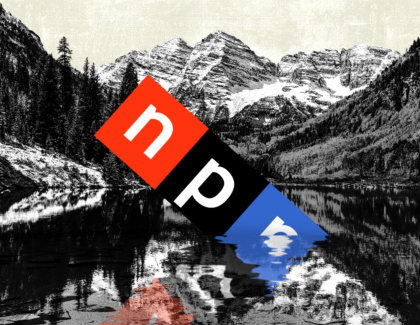Sign up for the daily CJR newsletter.
Late last month at the first-ever podcast upfront in New York City, NPR unveiled a study showing that nearly 33 percent of its podcast audience is comprised of people of color.
This is significant in light of public radio’s long struggle with trying to reach more diverse audiences, particularly African American, Latino, and Asian American listeners. While NPR is touting its success in expanding into new audiences, podcasts, generally, are growing among more digitally savvy audiences, which also happen to be more diverse.
While 87 percent of NPR’s terrestrial public radio’s audience is white, that number drops to 67 percent for NPR podcasts. Don’t get me wrong, public radio is still mighty white–but it is finally making gains among more diverse listeners, particularly younger listeners who are used to receiving content digitally. Young audiences are generally also more diverse, the type of listeners advertisers want.
Sources: Public Radio Podcast Listener Survey, Edison Research, 2015.
Public radio distributes some of today’s most popular podcasts, including Serial. NPR actually owns a few. Invisibilia, a smart science show about the invisible forces that guide human behavior, is one of the most viral. It was downloaded 33 million times in the two months that it ran, according to Keith Woods, NPR’s vice president of diversity for news and operations.
“We’ve gained access to a universe of artists and fans that public radio has never been able to claim in the past,” Woods said. “We’re using these podcasts to bring these new audiences into the rest of our programming.” For instance, NPR TV Critic Eric Deggans, who is familiar to many traditional NPR listeners, can also be heard on NPR’s Pop Culture Happy Hour podcast. Deggans is African American, while the hosts of Invisibilia are both women.
We’ve gained access to a universe of artists and fans that public radio has never been able to claim in the past.
NPR showed off its newly improved audience reach to advertisers and a few select media representatives in April at the “Hearing Is Believing” podcast upfront, which brought together storytellers and producers responsible for six of the top 10 most downloaded podcasts in 2014, including Serial, This American Life, Radiolab, Freakonomics Radio, Invisibilia, and Wait Wait … Don’t Tell Me.
But NPR isn’t the only public media player in this space vying for growing, and more diverse audiences. Radiotopia, launched by Public Radio Exchange (PRX), is a network of 11 podcasts that are downloaded a combined seven million times a month, Curt Woodward reported earlier this month for BetaBoston.com. Last week the Knight Foundation invested $1 million into Radiotopia.
When I spoke with CEO Jake Shapiro in April, he told me that podcasts and his venture capital initiative, MATTER, had replaced public media’s Talent Quest, a program launched in 2007 by the Corporation for Public Broadcasting, in partnership with Shapiro, to bring new and diverse voices into public media.
Now, much of that investment is going into podcasts, he added.
“People who didn’t have a history with public radio had a shot,” Shapiro said of Talent Quest. The now-defunct initiative, designed like a contest, awarded hundreds of thousands of dollars to a handful of winners to produce their own radio shows.
Two of those winners, Al Letson and Glynn Washington, now have their own public radio podcasts. Washington is the host of Snap Judgment, a show focused on spoken word (or storytelling to a beat). The show also airs on terrestrial radio. Letson recently ended his terrestrial radio show, State of the Re:Union, which he launched as part of Talent Quest. Based in Jacksonville, Fla., Letson struggled to raise money to keep the venture going. Now a new resident of the San Francisco Bay area, Letson will soon launch Errthang, a podcast that will allow the slam poet to mix performance with political commentary and provide a sideline to his hosting role on Reveal, an investigative journalism series on public radio.
Letston says podcasts are cheaper and more flexible to create than typical broadcast shows, lowering the barrier to entry into public radio for content creators, which in turn allows for more diverse voices.
“Broadcast is kind of expensive, and it takes a lot to do an hour-long show,” Letson said. “For the amount of money we put into an hour-long broadcast episode, we probably could have made six podcasts. We could have had a year’s worth of podcasts, which would have been more easily funded.”
For NPR, making audience gains has also meant doubling its podcasting revenue, which is why it took center stage at last month’s upfront for advertisers.
“Pushing deeper and further into digital audio premises on a few things,” said Woods as he highlighted NPR’s long history in radio. “It plays to our strength. What’s new is that we’re breaking new ground with the millennial generation, our future as an audience. The younger you go, the more racial and ethnic diversity there is. We’ve got to be where they are. This is a new way of doing excellent journalism for us.”
Has America ever needed a media defender more than now? Help us by joining CJR today.








